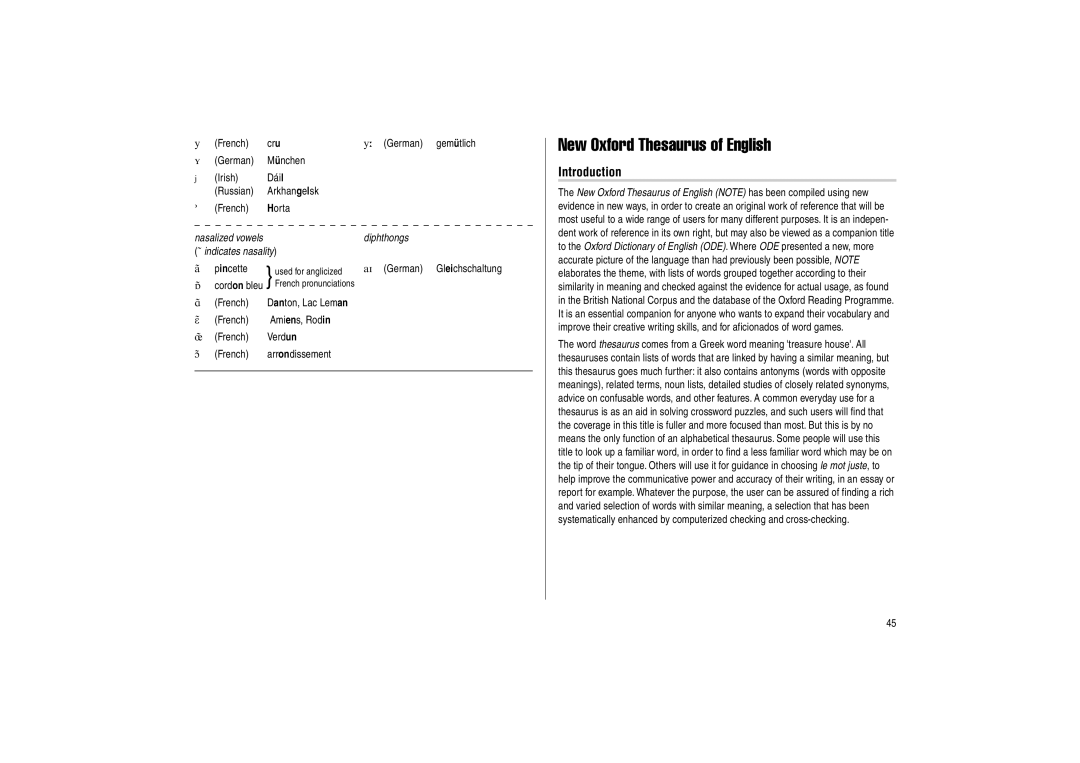
y | (French) | cru | y; (German) gemütlich |
Y | (German) | München |
|
j | (Irish) | Dáil |
|
| (Russian) | Arkhangelsk |
|
>(French) Horta
nasalized vowels |
| diphthongs | |
(~ indicates nasality) |
| ||
a~ | pincette | used for anglicized | aI (German) Gleichschaltung |
Q~ | cordon bleu | } French pronunciations |
|
A~ | (French) | Danton, Lac Leman |
|
E~ | (French) | Amiens, Rodin |
|
9~ | (French) | Verdun |
|
O~ | (French) | arrondissement |
|
|
|
|
|
New Oxford Thesaurus of English
Introduction
The New Oxford Thesaurus of English (NOTE) has been compiled using new evidence in new ways, in order to create an original work of reference that will be most useful to a wide range of users for many different purposes. It is an indepen- dent work of reference in its own right, but may also be viewed as a companion title to the Oxford Dictionary of English (ODE). Where ODE presented a new, more accurate picture of the language than had previously been possible, NOTE elaborates the theme, with lists of words grouped together according to their similarity in meaning and checked against the evidence for actual usage, as found in the British National Corpus and the database of the Oxford Reading Programme. It is an essential companion for anyone who wants to expand their vocabulary and improve their creative writing skills, and for aficionados of word games.
The word thesaurus comes from a Greek word meaning 'treasure house'. All thesauruses contain lists of words that are linked by having a similar meaning, but this thesaurus goes much further: it also contains antonyms (words with opposite meanings), related terms, noun lists, detailed studies of closely related synonyms, advice on confusable words, and other features. A common everyday use for a thesaurus is as an aid in solving crossword puzzles, and such users will find that the coverage in this title is fuller and more focused than most. But this is by no means the only function of an alphabetical thesaurus. Some people will use this title to look up a familiar word, in order to find a less familiar word which may be on the tip of their tongue. Others will use it for guidance in choosing le mot juste, to help improve the communicative power and accuracy of their writing, in an essay or report for example. Whatever the purpose, the user can be assured of finding a rich and varied selection of words with similar meaning, a selection that has been systematically enhanced by computerized checking and
45
